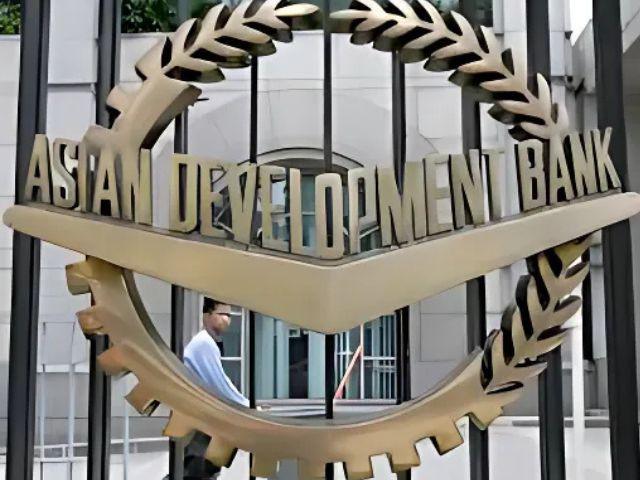The Asian Development Bank (ADB) has approved a financial set of $ 800 million for Pakistan as part of the resource mobilization reform program (Subprogram-II).
According to the Ministry of Finance, the package includes a loan -based loan (PBB) of $ 300 million and a guarantee based on the $ 500 million program (PBG).
This important development is the result of joint diplomatic efforts of the Ministry of Economic Affairs and the Ministry of Finance.
The initiative aims to improve the mobilization of internal resources and stabilize the economy through financial reforms, said ministry officials said.
They added that support will help improve the tax plan, increase income and promote budgetary discipline.
The program should also expand the country’s income base and marks a key step towards economic autonomy.
Read Adb Board meets on June 3 to approve $ 800 million Pakistani
According to Annual report of 2025 Asian development prospectsThe gross domestic product (GDP) of Pakistan is expected to increase by 2.5% during the year 2025, now the same growth rate as in the 2010 financial year.
The AfDB plans that Pakistan growth will increase to 3.0% during the 2010 financial year.
“Pakistan’s economy has benefited from an improvement in macroeconomic stability thanks to a solid reform implementation in fields such as the fiscal policy and the viability of the energy sector,” said ADB’s director of the country for Pakistan Emma Fan.
“Growth should persist in 2025 and increase in 2026. The sustained implementation of political reforms is essential to support this growth trajectory and strengthen budget and external stamps.”
Previously, ADB had postponed the approval of a financing package of $ 800 million for Pakistan for five days at the request of India which requested time to assess the loan documents, exposing faults in the lender’s rules of rules which allows such extensions.
The meeting was postponed to June 3, added government representatives.
Learn more: Pakistan, ADB partner to stimulate climate resilience
When he was contacted, the secretary of economic affairs, Dr. Kazim Niaz, confirmed that the meeting of the BAD board of directors was scheduled for May 28, but was postponed for five days at the request of the Indian Executive Director.
The secretary said that by virtue of the BAD rules, any director can request a single extension on the date and that India took advantage of this rule.
ADB Country Office did not respond to a request for comments on development.
The Indian move intervened after it did not blocked the approval of the $ 1 billion loan tranche for the International Monetary Fund.
ADB’s postponement underlines that Pakistani representatives to the World Bank, the IMF, the investment bank in Asian infrastructure and the AfDB will have to adopt a proactive approach to protect the economic interests of the country.
Read also: India approves the furtive jet plan in the middle of tensions with Pakistan
After faced the defeat in the hands of the armed forces on the battlefield, India began to put pressure against the economic interests of Islamabad.
The postponement of five days did not have an impact on the external financing plans of Pakistan and the money should circulate in the accounts of the central bank after the approval of the board of directors on June 3.
Tensions between India and Pakistan intensified on April 22, after an attack in the Pahalgam region, Jammu and Kashmir (Iiojk), killed 26 people. India blamed Pakistan for the incident without providing proof. Islamabad denied India’s claims and called for an independent investigation.
India then suspended the 65-year-old Industry Water Treaty, canceled visas and closing border passages leading to Tit-For-Tat measures by Pakistan.
The military engagement also intensified with missile strikes on May 7 targeting several cities in Punjab and Azad Jammu and Cashmere, followed by Pakistan Downing Indian Warplanes.
As hostilities increased, the two countries have launched military strikes, India hitting Pakistani air bases and Pakistan’s reprisals by damaging the storage sites of Indian missiles and other strategic targets.
On May 10, diplomatic efforts led by the United States led to a cease-fire agreement, although the two countries continue to engage in a war of stories.




